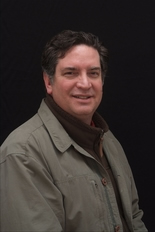 |
Home
Campaign News |
|
My entire career, from Penn State undergraduate studies until now, has been spent on environmental issues, including the U.S. EPA in Washington, DC, with official work abroad, to the Pennsylvania Department of Conservation and Natural Resources, leadership posts at two land conservancies, a successful small business, and many years of volunteer work with national and local environmental and conservation groups. No one would question my commitment to environmental quality.  The science is not conclusive on global warming, argues Josh First. After reading the leaked emails of climate change researchers at East Anglia University and Penn State, one must address the issue of human-caused climate change in light of what those emails mean. British newspapers, including the Guardian, The Globe and Mail, and the Timesonline, did solid analysis of those emails. Obviously, the planet is warming; it just concluded two ice ages that had much of the planet’s surface under 100 feet of ice, now replaced with forests and fields, without human intervention. How much of that warming is now attributable to humans is a reasonable question. History demonstrates that humans can and always have impacted their environment. Prehistoric humans ate and killed off large animal populations across the planet. Photographs from the industrialized 1900s show air thick with smog, dead streams filled with belly-up fish, hillsides stripped bare of trees, and the grand-daddy of them all, the Cuyahoga River, repeatedly in flames. Drinking water, air, and land in many places were all polluted beyond use. If you think that humans cannot influence the environment, then you are both enjoying and ignoring the benefits of past environmental protection efforts that cleaned up the past messes. Early in its history, the theory of human-caused climate change posited that humans might be adversely affecting the planet through pollution on a global scale, a fair research question. In light of past pollution mistakes, ignoring the question would be foolish. Problems erupted, however, when initial concerns became enshrined as facts beyond question or doubt. Questioners were dubbed kooks. Such sureness, so soon in a major scientific inquiry, was probably unprecedented in the field of science. Politically and professionally, its advocates attacked, vilified, and suppressed every attempt to question data, methods, or conclusions about climate change. With such high stakes for entire economies, jobs, businesses, governments, and families, how could someone not question the premise? Good science would stand up to the scrutiny. And that is where advocates of human-caused climate change lost me. The leaked emails prove that the biggest names in climate change are big names only because they have actively hidden, destroyed, and manipulated data that disproves their views. Insulated behind impenetrable, tenured university walls, they have used the academic peer review process to secretly undermine potential critics, artificially keeping those viewpoints out of the academic literature and therefore not in the “mainstream.” They discredited perfectly fine graduate students who began asking their own questions, thereby sidelining their careers and chasing them out of the field. They have colluded among themselves on data, its analysis, and public communications about it. The U.N. Intergovernmental Panel on Climate Change’s conclusion, that Planet Earth faces an impending Doomsday crisis, is largely driven by these academics and their data. Until the array of problems unearthed by these leaked emails is resolved, I remain skeptical of climate change crisis claims. Sadly, so many other legitimate environmental issues have become entangled in this likely false crisis. Making decisions in a crisis is difficult, but that is what climate change has become: A demand for immediate, sweeping changes. But as a conservationist, I do not need a crisis to know that the conservation of natural resources is important. Pennsylvanians are successfully facing other crises, including the rapid loss of farmland, which in about 25 years will be critical for feeding the East Coast. Food security will be a national security issue then, in terms of both source and abundance. Acting now heads off the issue.  Josh First Fortunately, Pennsylvanians have been quietly investing in farmland protection for 40 years, and we are now on our way to preserving enough of it to feed a growing east coast population. Protected farmland also protects watersheds, wildlife habitat, hunting areas, scenic views, and a way of life. This is why I am a conservationist, and not an environmentalist crisis-monger. Careful analysis, good data, planning, and implementation, without drama, are all elements of legitimate problem solving and conservation. Anything else is suspect at best. Josh First is an outdoorsman from Harrisburg, and a Republican candidate for the Pennsylvania 17th Congressional District. His campaign web site is www.joshfirst.com http://www.pennlive.com/editorials/index.ssf/2010/02/you_can_value_the_natural_worl.html
|
Paid for by the First For Congress Committee


